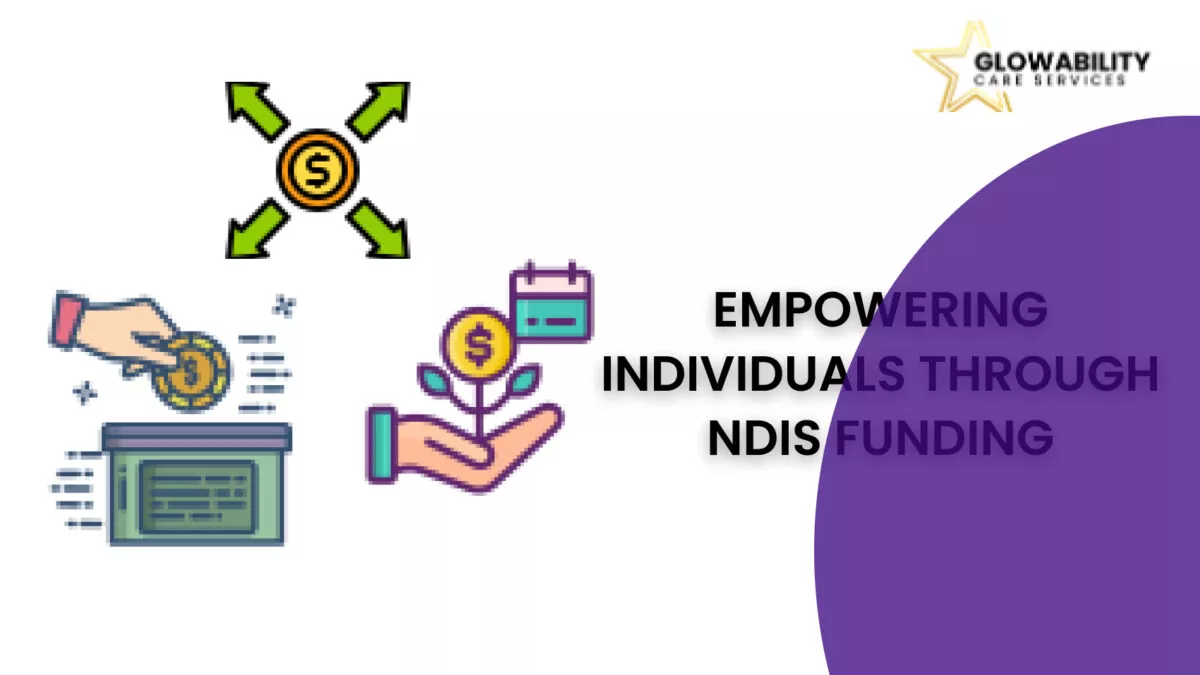
Accessing NDIS Support: Essential Requirements for Maximizing Benefits from NDIS
July 4, 2023
Supporting Individuals with Psychological Disability: The Role of NDIS
July 5, 2023NDIS Funding – Meeting Unique Needs, One Participant at a Time
The National Disability Insurance Scheme (NDIS) has revolutionized the way individuals with disabilities receive support and funding in Australia. With its person-centered approach, the NDIS aims to empower participants by providing them with the necessary resources to live fulfilling and independent lives. In this article, we will explore the various aspects of NDIS funding, including eligibility, categories, amounts, and the available support providers in Melbourne.
Eligibility for NDIS Funding
To be eligible for NDIS funding, individuals must meet certain criteria. Firstly, they must be under the age of 65 and be an Australian citizen or hold a permanent visa. Secondly, they need to have a permanent disability that significantly impacts their daily life. It’s important to note that not all disabilities automatically qualify for NDIS funding, as the scheme focuses on providing support to individuals with significant and permanent disabilities.
Funding Categories
The NDIS offers funding across several categories, each designed to address specific needs and goals of participants. These categories include:
1. Core Supports: This category covers everyday activities and support needs, such as personal care, transportation, and community access.
2. Capital Supports: Funding under this category is allocated for the purchase of assistive technology, home modifications, and specialized equipment to improve independence and quality of life.
3. Capacity Building: This category focuses on enhancing participants’ skills and abilities to achieve their goals. It includes funding for education and employment support, social participation, and support coordination.
4. Support Coordination: Support coordination funding assists participants in navigating and managing their NDIS plans, connecting them with appropriate service providers, and ensuring their goals are being met.
Funding Amounts
The NDIS determines the funding amount an individual receives through an assessment process that considers their unique needs and goals. The NDIS takes into account factors such as the type and severity of the disability, the level of support required, and the participant’s individual circumstances. It’s important to remember that NDIS funding is not fixed and can be adjusted as participants’ needs change over time.
Accommodation Funding
For individuals with specific accommodation needs, the NDIS provides funding options to support their housing requirements. This includes funding for Specialist Disability Accommodation (SDA), which caters to participants with extreme functional impairments or very high support needs. SDA funding aims to ensure that suitable housing options are available, enabling participants to live in a safe and comfortable environment that meets their unique needs.
SIL Funding
Supported Independent Living (SIL) funding is available to participants who require assistance with daily living activities due to their disability. SIL funding enables individuals to live in a shared or individual living arrangement while receiving support from trained professionals. This support may include personal care, household tasks, and community engagement. SIL funding promotes independence while ensuring that participants receive the necessary support to lead a meaningful life.
NDIS Government Funding and Support Providers in Melbourne
The NDIS is a government-funded scheme, with the Australian government allocating resources to support individuals with disabilities. The National Disability Insurance Agency (NDIA) administers the funding and oversees the implementation of the NDIS across the country.
In Melbourne, various support providers, registered with the NDIS, offer a range of services to participants. These providers deliver personalized support tailored to the unique needs and goals of each participant. Whether it’s support coordination, therapeutic services, community access, or assistive technology, participants can access a wide array of support services from approved NDIS providers in Melbourne.
In conclusion, NDIS funding plays a vital role in enabling individuals with disabilities to lead fulfilling and independent lives. By focusing on the unique needs of each participant, the NDIS ensures that appropriate funding is allocated to address their specific requirements.




